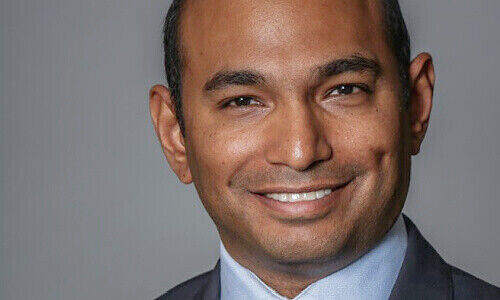First Greensill, then Archegos are drawing attention to the Swiss bank’s risk management. This misses the bigger picture of a lost decade for Credit Suisse, ex-analyst Rupak Ghose writes in an opinion piece for finews.com.
Having started my career on the TMT (technology, media and telecoms) team at Credit Suisse in the late 90’s dot-com bubble characterized by the excesses of colorful tech banker Frank Quattrone, the recent scandals around Greensill and Archegos give a sense of déjà-vu.
There will always be firms that are better risk managers. As usual Credit Suisse is a laggard and Goldman Sachs was early to exit its positions. All banks have been negatively impacted by increased regulation and low rates especially in Switzerland. But are we at risk of not seeing the wood from the trees?
Diverging Stock Prices
Credit Suisse shares are down 80 percent since their post-2008/09 crisis peak. This is in sharp contrast to other wealth managers in a decade where equity markets have soared, the world has produced more billionaires than ever before and retail trading activity has exploded.
Other banks with large wealth management businesses such as UBS and Morgan Stanley have seen the benefits of radical management actions. UBS’ share price has outperformed materially over the same period and Morgan Stanley’s stock has more than doubled.
Lost Credit Suisse Decade
The lost decade at Credit Suisse hasn’t been without some superficial changes. There have been three CEOs (Brady Dougan, Tidjane Thiam, and Thomas Gottstein) with very different backgrounds and management styles and an accompanying rearranging of some of the deck chairs.
Credit Suisse carved out some business lines, only to repackage them back together a few years later. A focus on pre-exceptional profits was a constant, as was the appearance of exceptional charges.
Ripe For Activist Investor?
Another constant is stability in the chairman’s seat, and of course a tidy compensation package for 2020. Let’s see what gets clawed back, following Greensill and Archegos.
Does the current crisis give cover for a relatively new Credit Suisse CEO with his roots in the Swiss business to be brave? Will Thomas Gottstein push for radical rather than incremental change to the business model and cost structure? If not, is Credit Suisse ripe for some form of shareholder activism?
Banks Playing Catch-Up
The last decade has seen tremendous change in the payments landscape creating new digital payments giants. It has left banks in the wayside, desperately playing catch up.
The next decade is likely to see a similar transformation in Credit Suisse’s most valuable business: wealth management. A historically fragmented business is already going through consolidation.
U.S. Rivals Transforming
At Morgan Stanley, CEO James Gorman fundamentally reshaped the value of the wealth management business and group. He did so by scaling up in «high-touch» with the Smith Barney deal, then in «low-touch» through the acquisition of online broker E*Trade last year.
This comes against the backdrop of democratization in retail trading through easy and cheap access to investment information online, as well as trading through Robin Hood-like platforms. The wealth managers of tomorrow will have to deal with an increasingly fickle set of clients.
Radical Shift Vs Incremental
Moreover, beyond wealth being passed down from one generation to the next, the record levels of disruption and innovation is creating a new young first generation of clients. The easy route for Credit Suisse would be to throw balance sheet at this shift – as has been a theme across wealth management in many emerging markets.
However, the lesson from the Archegos loss is the need to focus on technology-driven tools that create more consistent revenues with platform economics. Building a Hargreaves Landsdown or Ant Group-type platform business may involve lower revenues and will definitely need managers with different skillsets around technology-driven innovation and platforms.
But if firms like Credit Suisse continue with incrementalism, they are merely playing in quick-sand. More radical transformations, of course, come with execution risks but a good place to start change is increased diversity in the skillsets of board directors who can counsel CEOs on this journey.
Rupak Ghose is an advisor on fintech and market infrastructure. The British banker began his career on CSFB's trading floor in 1998 before moving into equity research. From 2003 until 2011, he was Credit Suisse's research analyst for diversified financials, during which he was one of the sector's top-ranked buy-side analysts. After leaving the Swiss bank, Ghose was head of corporate strategy – including mergers and acquisitions – for Icap from 2013 until 2016 and then for Nex, now part of the CME Group, until two years ago.


































